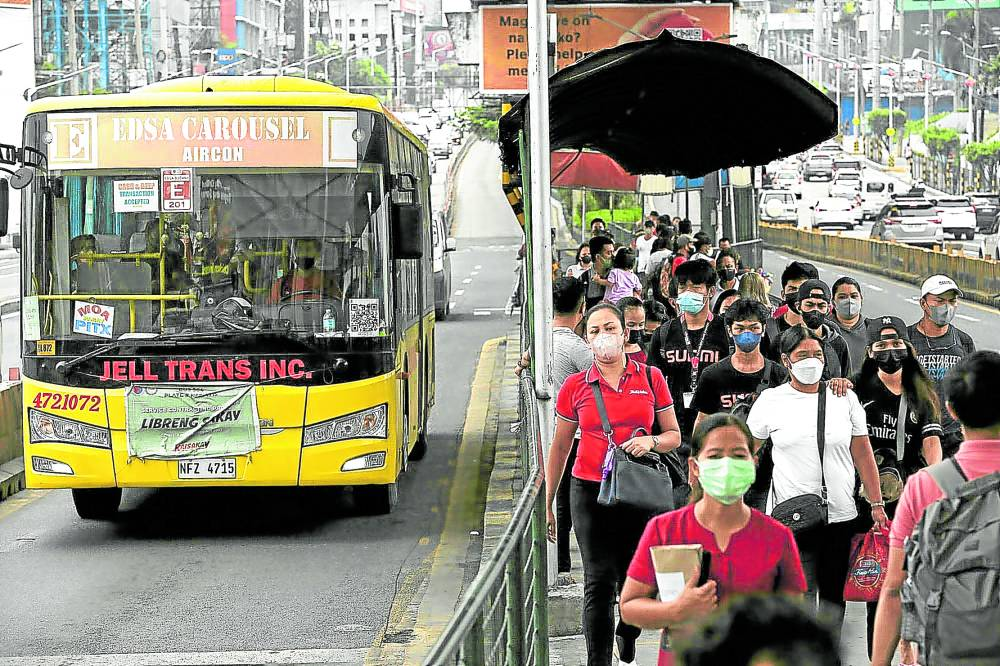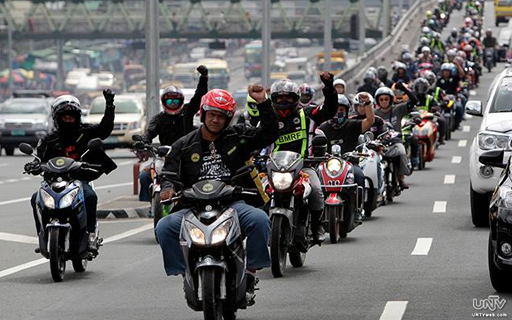 |
| Photo from Inquirer |
The labor group Partido Manggagawa (PM) welcomed the return of the “libreng sakay” program of the government but expressed opposition to the planned privatization of the EDSA bus carousel.
“Free rides on EDSA is good news for workers and commuters. But privatizing the EDSA carousel will mean higher fares without better service once implemented. We should have learned our lessons from the epic fail of electricity and water privatization. Electricity rates in the country are the highest in Asia and water concessionaires cannot even provide 24/7 service,” stated Rene Magtubo, PM national chair.
The labor leader said workers won’t accept the template of outright privatization
as a cure to mismanagement, corruption, and bad governance by those in power.
He also countered reports that DOTR’s proposal to privatize the Edsa busway has
the support of trade unions.
Magtubo added that “The labor movement’s stand is that privatization is not a
panacea to our public transportation problems, and we don’t subscribe to the
idea that a privatized transport system is a global standard. Mass transport
systems in many economies remain publicly run and efficiently managed.”
PM said that the free ride was beneficial to the
working people in terms of saved income and travel time. “Transforming the
system into a cooperative-run busway may create an alternative economy, as well
as synergy to both the coop workers and the commuting public instead of the
typical ‘seller-buyer’ relationship under the privately-run utilities that we
had over the past several decades,” Magtubo insisted.
Likewise, Magtubo stressed that the government must retain control of
international airports, and may opt to consider other models like cooperatives
for the operation of the EDSA busway carousel.
“There are many examples of successful public transportation systems and
airports around the world that are owned and controlled by the state, such as
those in Japan, Switzerland, Germany, Singapore, and Canada. Even the US hasn’t
embraced privatization for running its 5,000 public airports, while our
neighbor Hong Kong maintains the world’s best in mass transport system. These
systems and airports provide affordable and efficient transportation options
for the public, while also serving as a vital source of public income and
employment,” Magtubo explained.
PM urged the government to listen to the concerns of the people and to
prioritize the needs of the public over private interests.
“We stand with the working class and the people in calling for an efficient and
equitable transportation system that serves the needs of all Filipinos. What
the country needs is a strong, accountable, comprehensive, responsive,
effective, and democratic public services,” Magtubo concluded.
13 January 2023
Partido Manggagawa







